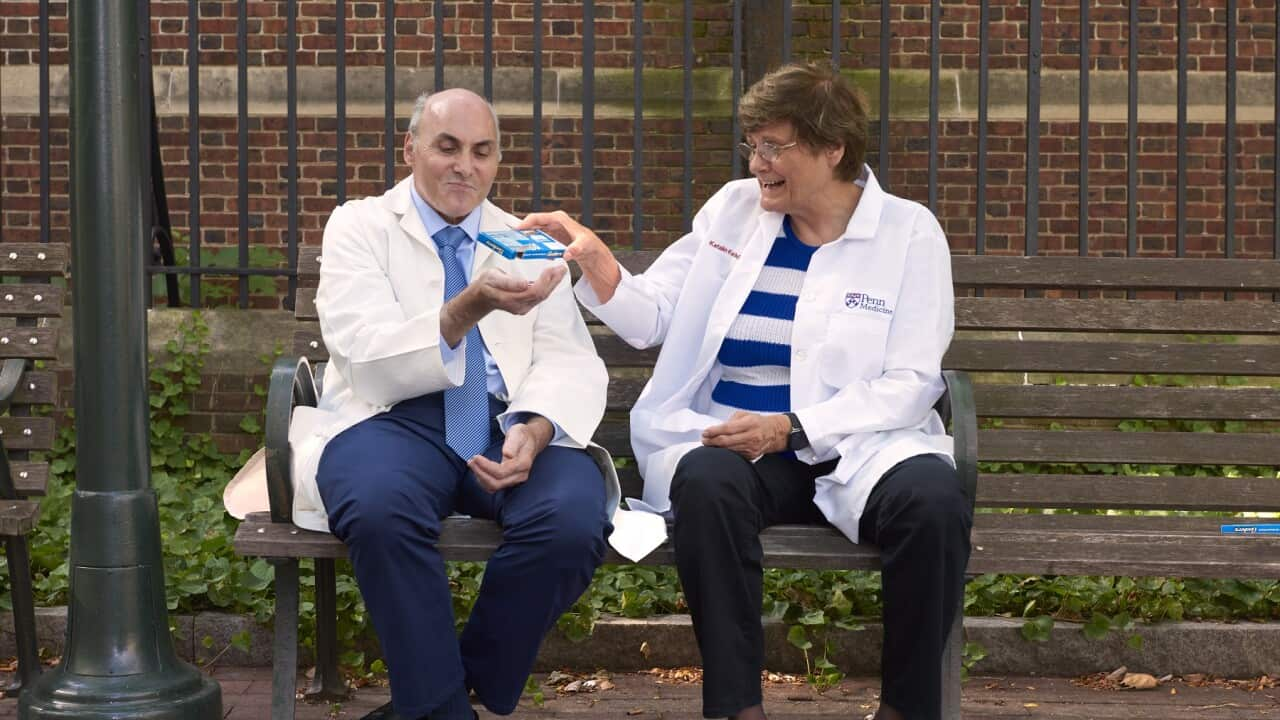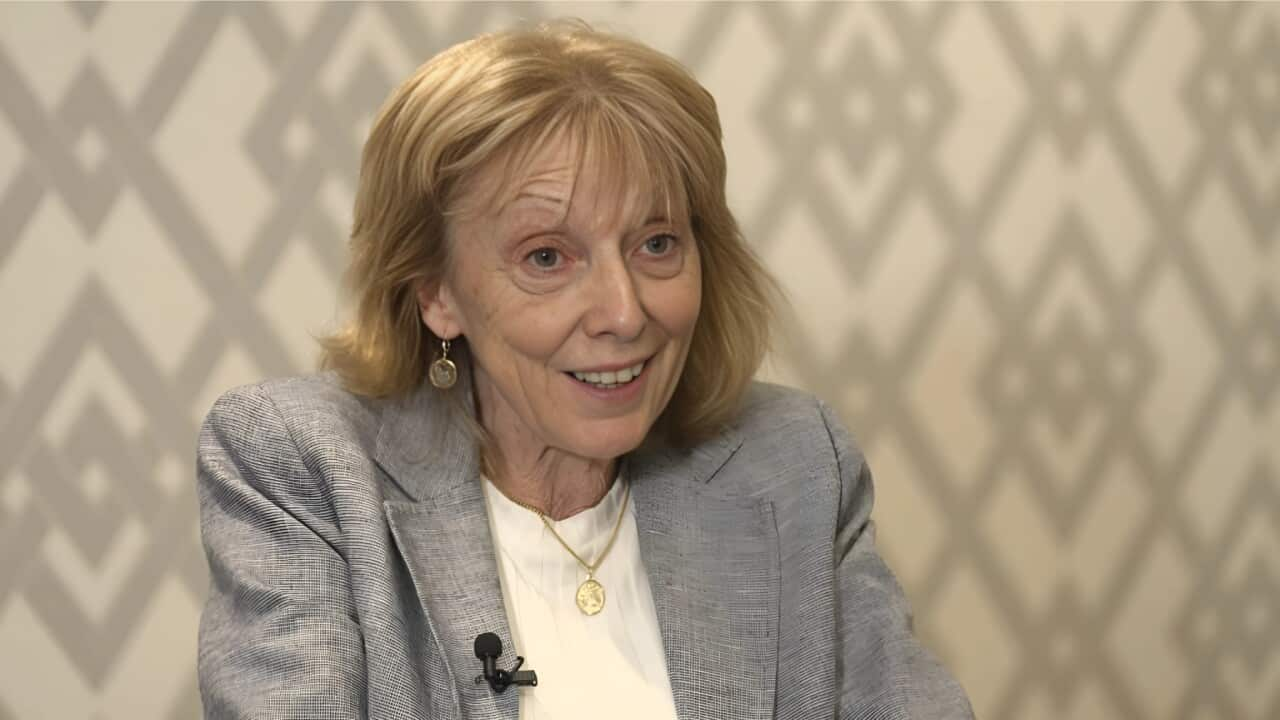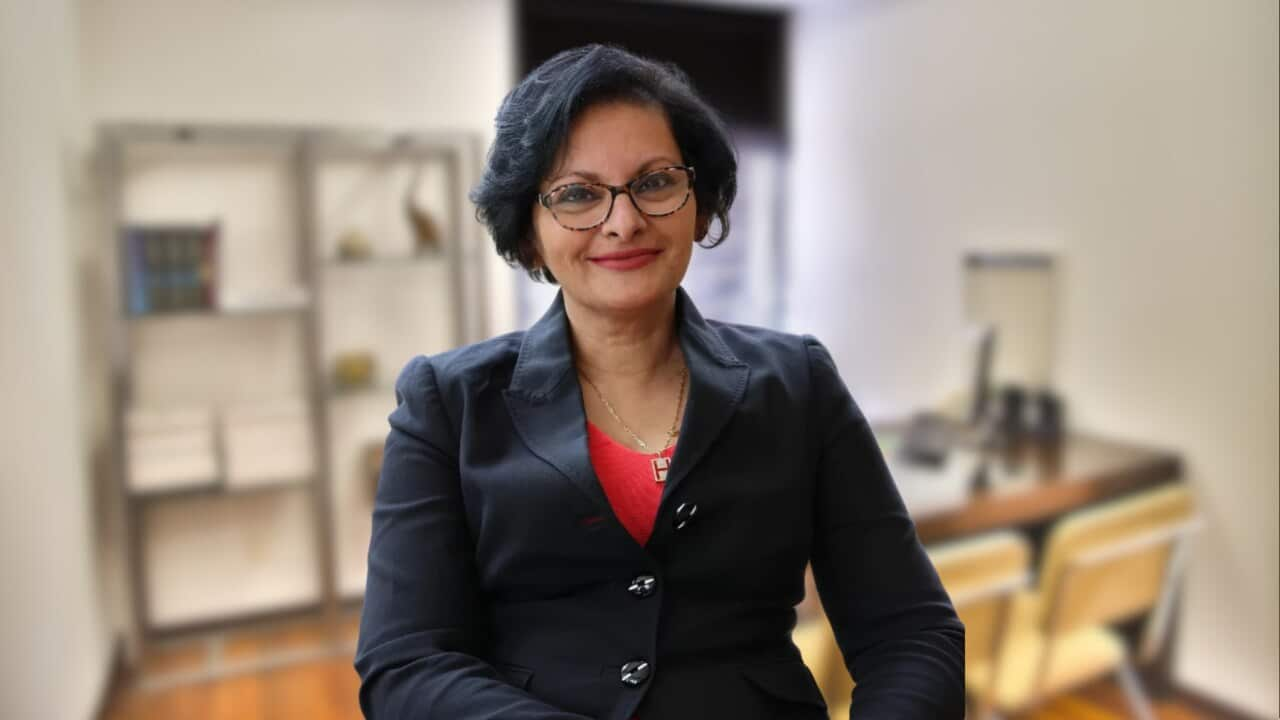TRANSCRIPT:
Hungarian scientist Katalin Karikó and United States colleague Drew Weissman have won the 2023 Nobel Prize for Medicine.
The Swedish award-giving body says they significantly contributed to the unprecedented rate of vaccine development during one of the greatest threats to human health in modern times.
Dr Karikó says she found out she had won the award after being woken up in the middle of the night, and thought she was being pranked.
''They called me up. It was 3:40 (am) or something, very early. And my husband picked up the phone and talked to somebody and said, you know: 'This is for you.' So he handed over the telephone and, you know, what was said, you know, that me and Drew Weissman, received the Nobel Prize today and I was like, I didn't know whether it is real. We suspected maybe some, you know (a prank) for him. Yeah, maybe. I don't know. People report things like that."
Dr Weissman says he was in a similar state of disbelief after receiving the news.
"Katie texted me and I just got a cryptic message at four in the morning to 'Thomas -call' and from there, so I texted back and said: 'No, who's Thomas?' And she says, Nobel Prize (Thomas Perlmann, secretary of the Nobel Assembly). And then I called her and we talked and she tells me about the message and they couldn't reach me because they had the wrong number or whatever and we said, you know: 'This has to be a prank. Some anti-vaxxer is, you know, playing with us.' And, you know: 'This can't be real.'"
The prize, among the most prestigious in the scientific world, was selected by the Nobel Assembly of Sweden's Karolinska Institute Medical University and comes with over $1.5 million for the winners to share.
World Health Organisation director-general Tedros Adhanom Ghebreyesus has congratulated the duo for their achievement.
"Today is a great day for health, a great day for science, and a great day for vaccines. I offer my warmest congratulations to Dr. Katalin Karikó and Dr. Drew Weissman, who today won the Nobel Prize in Physiology or Medicine, for their work in developing the technology that led to mRNA vaccines against COVID-19."
Dr Karikó, a former senior vice president and head of RNA protein replacement at German biotech firm BioNTech, is a professor at the University of Szeged in Hungary and an adjunct professor at the University of Pennsylvania.
She recalls how she met Dr Weissman.
"In 1997 we met at the copy machine, as it was, - and maybe you have to have some more copy machines around (laughs)) so that people can stand there and talk. But, you know, Drew (Weissman) came from RNA and I was already here in 1997, already eight years, and working with doing messenger RNA (mRNA) and I brag about that I can do RNA. And Drew was interested in vaccines, and that's how our collaboration started.''
Co-winner Dr Weissman, a professor in vaccine research also at Pennsylvania University, says it was a "lifetime dream" to win and recalls working intensely with Dr Kariko for over 20 years.
He says the lack of popularity surrounding RNA made it difficult for them to find funding.
''We worked side by side for all of that time because we couldn't get funding, we couldn't get publications, we couldn't get people to notice RNA as something interesting. And it had failed clinical trials and pretty much everybody gave up on it. But, you know, Katie (Katalin Kariko) lit the match and we spent the rest of our 20-plus years working together."
In 2005, Dr Karikó and Dr Weissman developed so-called nucleoside base modifications, which stop the immune system from launching an inflammatory attack against lab-made mRNA, previously seen as a major hurdle against any therapeutic use of the technology.
BioNTech said in June that about 1.5 billion people across the world had received their mRNA shot, which was co-developed with Pfizer.
It has been the most widely used vaccine in the West.
Dr Weissman says their breakthrough wasn't an overnight development.
"Everybody thinks RNA was invented in ten months, but the first clinical trials in 1995, 96. It's been around for a long time, clinical trials with modified RNA started in 2018, and they've been going on ever since. We had three clinical trials going on before COVID hit, so this isn't a new thing."
He says the recognition of their work with RNA has now allowed them to expand their research to other areas.
''We've got work on cancer vaccines, vaccines for autoimmune diseases, for allergies. We've got gene therapy, moving into clinical development. We've got a variety of therapeutics. So, you know, it's already been going on for many years. And this is just given RNA the recognition.''
Dr Karikó says at the end of the day, it's all about taking pleasure from what you do for a living.
''You have to enjoy it. If you don't enjoy what you are doing, then you shouldn't do it. So that if I were to say if you like the spotlight, then you should be an actor or actress. And if you like to follow instructions, maybe military (is) the best, if you want to be rich, I don't know the answer for that, but if you would like to solve problems then you know, science is for you.''
The medicine prize announcement begins this year's Nobel awards, with the remaining five to be unveiled in the coming days.
The prizes, first handed out in 1901, were created by Swedish dynamite inventor and wealthy businessman Alfred Nobel, and are awarded for achievements in science, literature and peace, and in later years also for economics.
The Swedish king Carl Gustaf XVI is to present the prizes at a ceremony in Stockholm on December 10, the anniversary of Alfred Nobel's death, followed by a lavish banquet at city hall.













